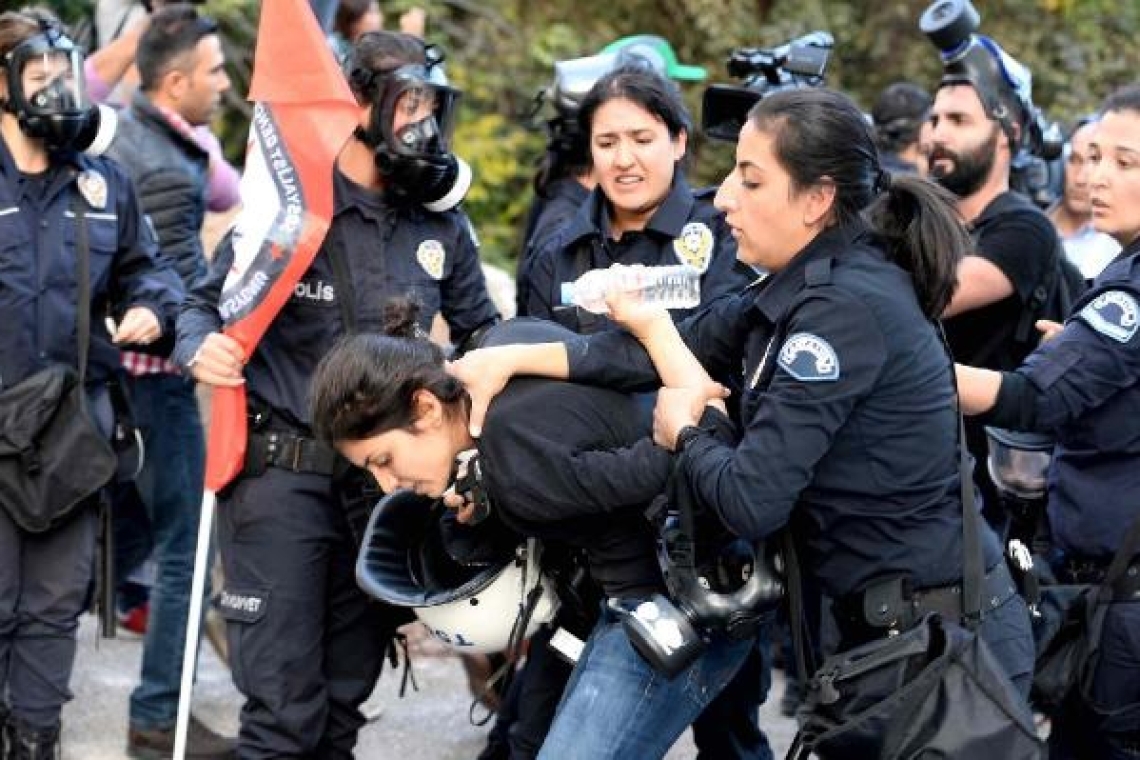MLSA - The trial of 17 defendants, including journalists Eylem Sonbahar, Sema Karakurt, and Metin Cihan, who were detained while covering protests during the G20 Summit in Antalya in 2015, was postponed once more. The Antalya 25th Criminal Court of First Instance held the 22nd hearing on Jan. 7 but separated the case file of a defendant whose statement had not yet been taken.
Charges and procedural delays
The defendants, who were detained on Nov. 15, 2015, during protests against the G20 Leaders’ Summit, are facing charges of “resisting to prevent the execution of a public duty,” with four of them also charged with “insult.” Journalists Sonbahar, Karakurt, and Cihan, who were detained while covering the protests, are among those on trial. The case has been supported by the Media and Law Studies Association (MLSA), which provides legal defense for Sonbahar and Karakurt.
None of the defendants attended the latest hearing, and their lawyers submitted written excuses for their absence. The defense team argued in a petition that the case should be dismissed due to the statute of limitations, which is set to expire on June 30, 2024, after eight years of legal proceedings.
Court’s decision and next steps
The court accepted the attorneys’ excuses but opted to separate the case file of one defendant whose statement had not yet been recorded to avoid further delays for the other defendants. The case was rescheduled for April 21, 2025.
Background on the case
The G20 protests in Antalya on Nov. 15, 2015, were part of a series of demonstrations criticizing global leaders for their economic and environmental policies. Journalists present to cover the events were detained alongside protesters, sparking concerns about press freedom in Turkey.
The protracted trial highlights the slow pace of justice in such cases, raising concerns about the impact of extended legal proceedings on defendants and the right to a fair trial. The case also underscores broader issues around freedom of expression and the treatment of journalists in Turkey, which has faced international criticism for its crackdown on dissent.



